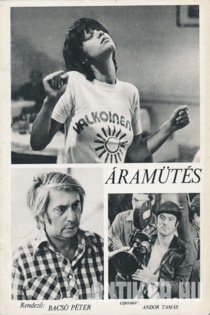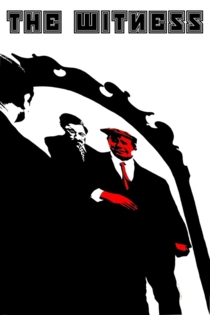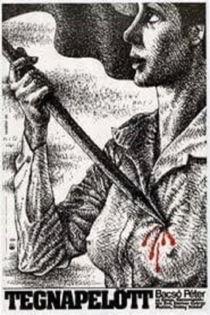
Péter Bacsó
1928 - 2009After high school graduation Bacsó wanted to become an actor and later a theatre director, but ultimately decided to try filmmaking. His first job in a film was as an assistant in Géza Radványi's Valahol Európában (Somewhere in Europe) at the age of 19. He continued as a script editor and screenwriter. He graduated at the Hungarian School of Theatrical- and Film Arts in 1950. At the time he was already a familiar face in studios.
He was a successful screenwriter during the 1950s before beginning to direct films a decade later. He made his first feature film, Nyáron egyszerű in 1963. He made his most famous film, A tanú (The Witness) in 1969, but it was banned at the time and wasn't released until 1979. The film became a cult classic in Hungary; it is a political satire about the early-1950s Communist regime.
Bacsó later continued to make mostly political and satirical films, for a wider audience. He made various genre films, trying his hand in musicals, comedies, etc. He continued filmmaking up to his later years, however his last two films were generally dismissed by critics and the public alike as badly written and low quality works. His 2001 film Hamvadó cigarettavég (Smouldering Cigarette) was a biopic of Hungarian actress and singer Katalin Karády. His 2008 film Virtually a Virgin was entered into the 30th Moscow International Film Festival.
Description above from the Wikipedia article Péter Bacsó, licensed under CC-BY-SA, full list of contributors on Wikipedia.
転生したら剣でした
Péter Bacsó
Juli Básti, György Cserhalmi
Reincarnated as a sentient weapon with memories of his past life, but not his name, a magical sword saves a young beastgirl from a life of slavery. Fran, the cat-eared girl, becomes his wielder, and wants only to grow stronger, while the sword wants to know why he is here. Together, the strange duo's journey has only just begun!
Reincarnated as a Sword
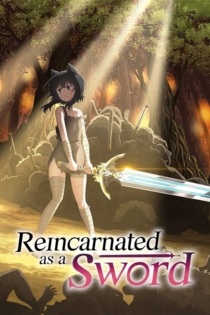
Oh, Bloody Life
Péter Bacsó
Dorottya Udvaros, Zoltán Bezerédy
The Hungarian Oh, Bloody Life reflects on the heavy emotional toll taken by the repressive Stalin regime. Dorotya Udvaros plays a young actress from a high-born family. The government bias against persons of wealth threatens to destroy her career before it begins. As a final blow, she is threatened with deportation. The exasperation inherent in the film's title is only the tip of the iceberg.
Oh, Bloody Life
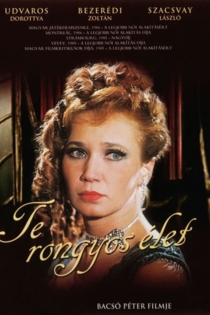
Ki beszél itt szerelemről?
Péter Bacsó
László Gálffi, Györgyi Tarján
One morning, the caretaker of the student hostel of the University of Horticulture finds Citrom Flóra and Bohus Tamás, by the purest accident, in one bed together. Both are dismissed from university. During the appealing procedures they fall in love with each other.
Why not Speak of Love?
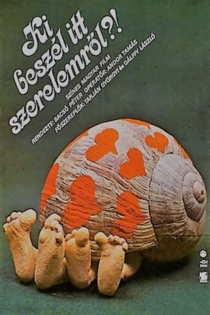
Hány az óra, Vekker úr?
Péter Bacsó
Tamás Jordán, Ferenc Kállai
Even without a clock, the watch-maker of the small country town always knows the exact time to the second, and for this reason he came to be called Mr. Clock. His wife left him, and he only lives for his work. He is just engaged in repairing the tower clock when his wife returns and the German troops appear.
What's the Time, Mr. Clock?
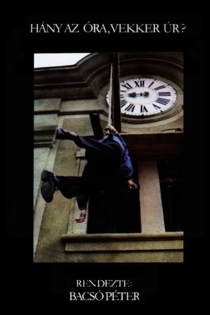
Nyáron egyszerű
Péter Bacsó
Mária Laurentzy, Bence Tóth
Kati, a fragile, sixteen-year-old teenager and Sándor, a twenty-two-year-old young man get married defying their parents' and friends' objections. They spend their wedding night in a bunk-house, and then, trusting the strength of their love, they move in a boathouse on the Roman beach of the Danube.
No Problems in Summer

Outbreak
Péter Bacsó
Sándor Oszter, Zsuzsa Hőgye
The main character of this film reminiscent of political writing is Laci, the young and ambitious factory worker. He lives with his brother's family. After an unsuccessful attempt to escape from his native country and the prison sentence which follows it he gets employed by Pray, the progressive thinker, at a newly established computer centre. It is here that Laci learns to know Anna, the new-leftist university student, daughter of the general manager. Tóth, although he does not favour their relationship, does not oppose it either.
Outbreak
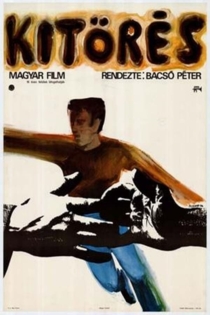
Forró vizet a kopaszra!
Péter Bacsó
István Gyarmati, Lajos Szabó
In this naturalistic satire enriched with burlesque, Boróka, the haircutting artist once cuts a hair so, that the customer has to be shaved bald. Sajtár Dezső wants to kill the barber, who feels to be a victim himself immediately. In his anguish he mixes up his apartment, his wife and everything in the uniform world of the block of flats and like a maniac, tries to find after his pursuer. They find each other at a neurological clinic.
Bald Head for Bald Head
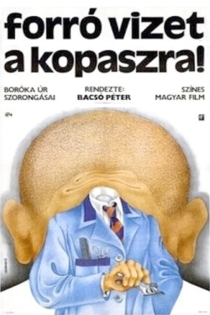
Banánhéjkeringö
Péter Bacsó, Tamás Tolmár
Dorottya Udvaros, Mihály Dés
A typist girl who is under the influence of nervous breakdown walks out to the street stark naked from the office she works in. A young physician goes by accidentally and tries to help her, spreading his coat over her nude body. From this moment his life changes completely.
Banana Skin Waltz
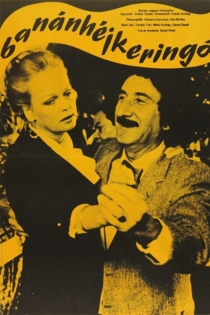
Titania, Titania, or the Night of the Stand-Ins
Péter Bacsó, Tamás Tolmár
Gyula Bodrogi, Dorottya Udvaros
Never miss a satire if you'd like to have a wider view of the 60's or 70's (and maybe the 80's) Eastern Europe. Both the regime and behavior of people are pilloried, with many-many hints that show deeper details of the correlation of the two. And the creators didn't miss to have some words about the West and it's part of this history. But don't sit down to see the film if you'd like to have a light funny evening movie, 'cause that will lash up your feelings alright. The director is that same Peter Bacso, who directed the legendary satire 'A tanu' (The witness) which deals with the same historical era, the same relations between politics and the people, just from a little different point of view.
Titania, Titania, or the Night of the Stand-Ins
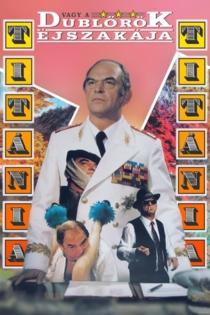
Cyclists in Love
Péter Bacsó
Tibor Orbán, Nóra Káldi
When András, Albert and Bence are on a cycling tour around Lake Balaton, their dreams come true. Sunshine, beach and pretty girls. András and his younger brother run after the same girl, Eszter. András persuade his brother not to pinch the girl. András pick her up one night and split up with her next day. Eszter follows the boy, but András sends her away...
Cyclists in Love
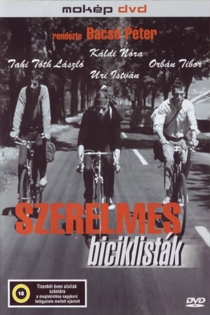
Ereszd el a szakállamat!
Péter Bacsó
Helyey László, Ferenc Kállai
This absurd story, bordering on the drawing-room comedy, portrays the practices of abusing power and the insolence of bureaucracy through the revolting of a young designer-engineer of the Railway Tilting Examination Board. The ambitious Pócsik works persevearingly on how to compensate for the tilting of railway carriages in bends. His jealous bosses, however, use their best efforts to block the development of an innovation.
Don't Pull My Beard!
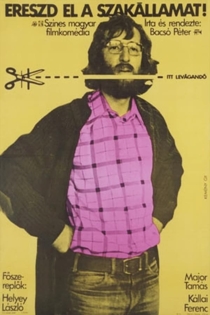
Sértés
Péter Bacsó
Géza Tordy, Ilona Kállay
Szása on his day off mends the old automobile of a young couple and goes shopping with his son. In the shop the saleswoman mistakes him to be a drunken customer of the other day and begins to offend him. Szása, for the sake of his son on the first place, wants to clear the misunderstanding up. At the end he is beaten up and humiliated.
The Insult
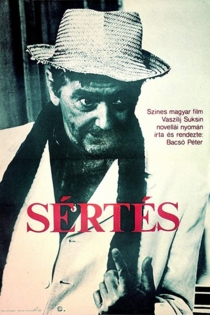
Nyár a hegyen
Péter Bacsó
Pecsenke József, László Mensáros
Komora, a young painter and his friends, Mari, a teacher, and the elderly doctor, Szabó, buy a barrack-building situated at the foot of the stone mine of Badacsony. Earlier, the placeserved as an internment camp. Now, they intend to establish a camp with workshop sessions for fine artists. Mari and the painter fall in love.
Nyár a hegyen
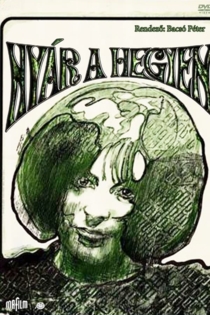
Áramütés
Péter Bacsó
Péter Andorai, Irén Psota
This double-threaded story depicts the lives of a sister and a brother in a critical phase of their lives. Virág participates in a tour of the collage choir to Finland. Upon her return home she refuses the assistance offered by Vince, leaves the collage and aborts her child by a young Finn.
Electric Schock
